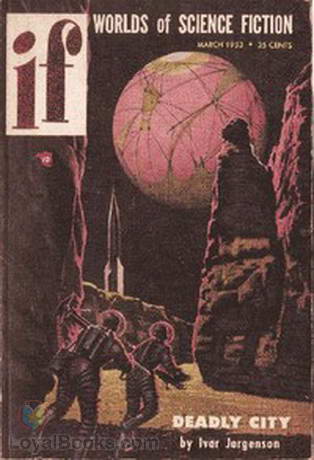The Rotifers By: Robert Abernathy (1924-1990) |
|---|

In "The Rotifers," Robert Abernathy takes us on a captivating and thought-provoking journey through a post-apocalyptic world. Set in a desolate future where humanity struggles to survive, Abernathy's novel explores themes of resilience, hope, and the indomitable human spirit.
The story follows a group of survivors who find themselves in a hostile environment, clinging on to the last vestiges of civilization. Through Abernathy's skillful writing, we are introduced to well-developed and complex characters who face unimaginable challenges. Their struggles and triumphs resonate deeply, making us root for their survival every step of the way.
Abernathy's world-building is exceptional, as he expertly creates a bleak and desolate image of a world torn apart by catastrophe. The author's attention to detail and vivid descriptions allow readers to experience the harshness of the environment, immersing us in the characters' struggle for survival. It's in these small details that Abernathy's storytelling shines, making us feel the characters' fear, desperation, and determination.
Moreover, the novel raises important questions about the fragility of our own society and the consequences of our actions. Abernathy skillfully delves into the human condition, exploring how individuals adapt and cope with adversity. The moral dilemmas faced by the characters force us to reflect on our own decisions and the potential consequences of our choices.
"The Rotifers" is not just another post-apocalyptic novel. It transcends the genre by delving into profound philosophical and existential themes. Abernathy's expert pacing keeps the story moving, while injecting moments of suspense and tension that keep readers on the edge of their seats.
The one criticism that could be raised is the occasional pacing issue in the middle of the novel, where the story momentarily meanders. However, this is a minor flaw in an otherwise gripping and memorable read.
In conclusion, "The Rotifers" is a remarkable book that deserves to be on every post-apocalyptic fiction lover's reading list. Abernathy's vivid storytelling, complex characters, and exploration of profound themes make this novel stand out from the crowd. With its impact, it stays with the readers long after the final page is turned. |